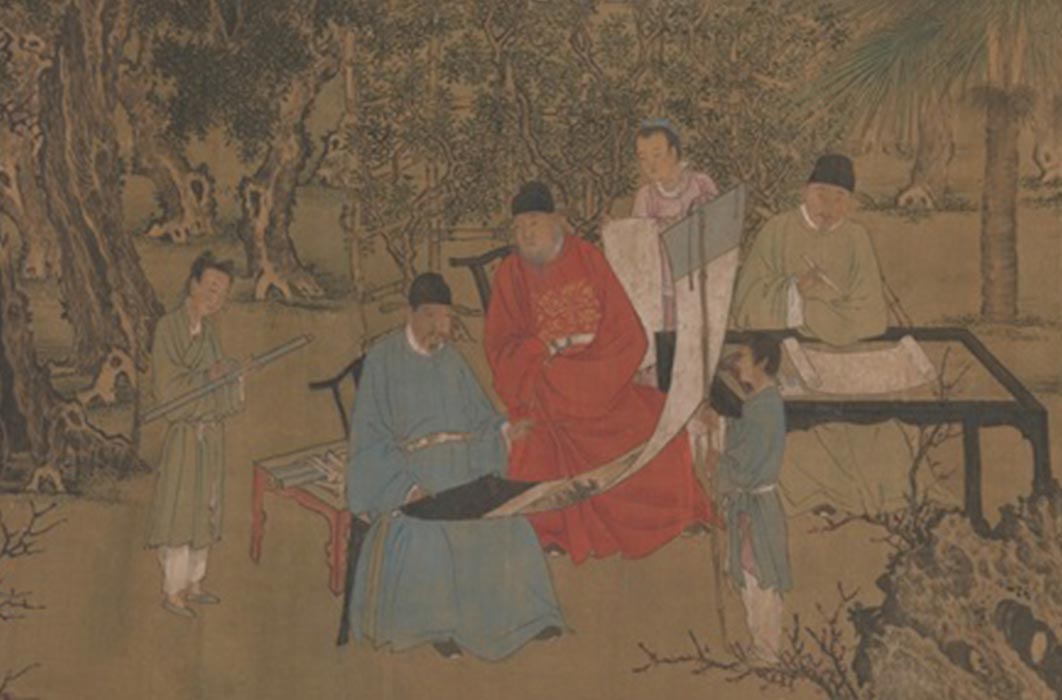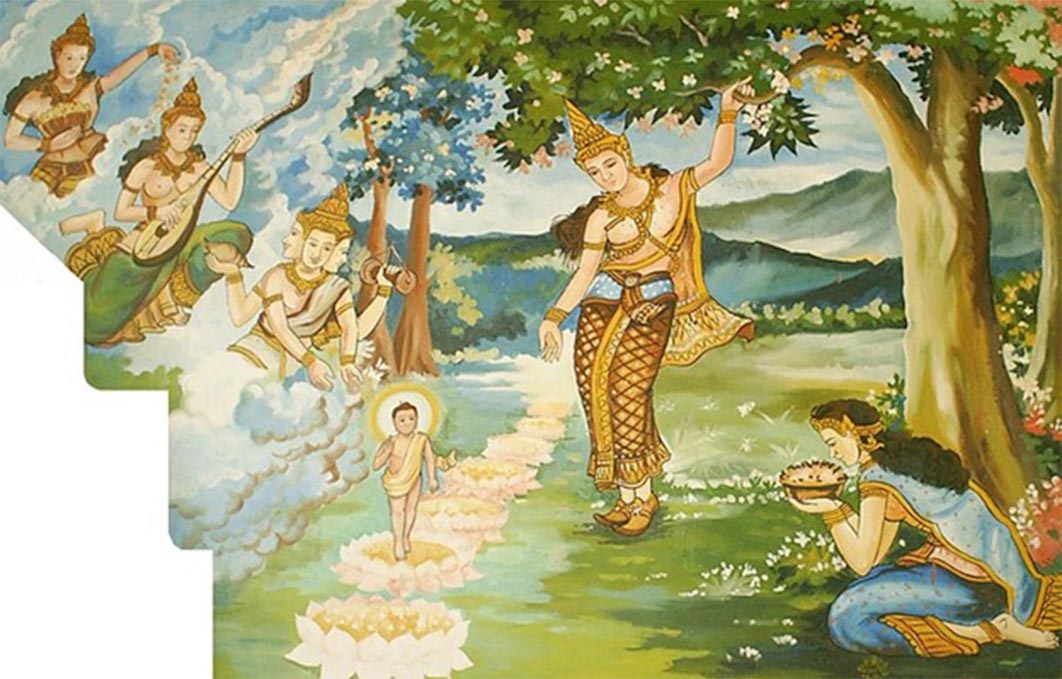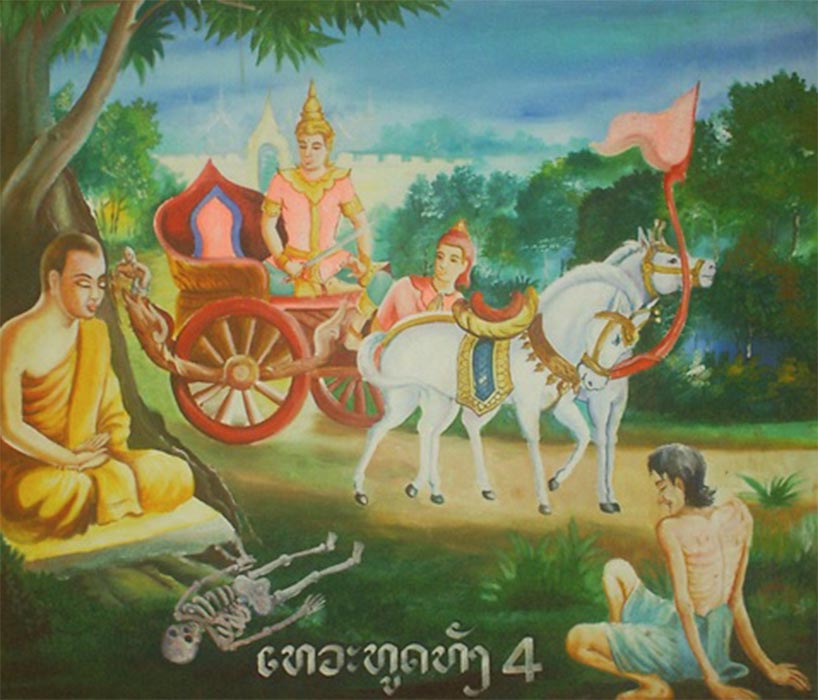
Lessons from the Masters Siddharta, K’Ung Ch’iu and the Old Man
One version of an old story has it that when Prince Siddhartha Gautama was born, a local priest visited the family compound and prophesied that the young man would grow up to be either an emperor or a Buddha, an Enlightened One. Quite naturally, the child’s worldly father preferred the former to the latter, so he sequestered young Siddhartha within the walls of the palace, hoping to discourage any untoward spiritual development by supplying everything the young man desired in the way of material delights. But young men are curious, so one day Siddhartha had his chariot driver take him out into the real world. The journey changed his life.

The birth of Gautama Buddha, in a forest at Lumbini. (CC BY-SA 3.0)
Siddhartha’s Journey
Soon after departing the palace grounds the young prince encountered an old man. He had seen elders before, but this was an aged man who had not benefitted from the cosmetics money could obtain. Siddhartha began to suspect that life exacts a toll, and he wondered about the path his own life would take. Fear began to cloud his still-inexperienced mind. He soon encountered a man who was afflicted by a hideous disease. With a shock, he thus discovered that life contains an element of suffering. Then he caught his first glimpse of a corpse, and the reality of death was seared into his consciousness. Siddhartha later reflected on the lessons he had learned: “I also am subject to death and decay and am not free from the power of old age, sickness, and death. Is it right that I should feel horror, repulsion, and disgust when I see another in such plight? And when I reflected thus ... all the joy of life which there is in life died within me.”
His heretofore-held illusions had evaporated. He now knew he needed to place his trust in something besides wealth and family position. Pleasure could not prevent age, illness, or death, and so could not be the pathway to happiness. While contemplating this, still unaware that he was about to completely change course in life, he was perplexed to come upon a holy man who seemed quite content. Something within Siddhartha suddenly shifted. He took a leap of faith. His mind at once understood what his heart had already come to appreciate.

The four heavenly messengers which the Bodhisatta Siddhartha Gautama encounters on his trips outside the palace: an old man, a sick man, a corpse and a wandering monk. (Public Domain)
From that moment on, the dancing girls back home did not please him anymore. He decided he had to study the meaning of life by becoming a holy man. His father, in trying to keep him from seeking a spiritual path, had instead catapulted the young man towards a destiny that would change the world. Siddhartha was determined to go on a journey of exploration even though he did not know where that journey would lead. If one had asked him what he was searching for and how he even knew there was something worth finding, he probably could not have answered. But he knew he had to look for it.
There was still the matter of convincing his father who, as expected, refused to let the boy leave. In lieu of what would later occur, it is instructive to observe the young man’s method for obtaining what he wanted. Siddhartha simply waited, insisting he would not move until he had his father’s consent. Dinnertime came and went. Siddhartha stood patiently in place. It grew dark outside, time for the household to go to bed. His father, certain that by morning the boy would return to his senses, said goodnight and retired to his sleeping chamber. But morning’s light found the boy still standing in the living room, ready to have his way or die. Needless to say, the young prince eventually got his way. Saying goodbye to his family, Siddhartha and his faithful charioteer left the family compound, never to return. He began to search for a reality he could trust.






